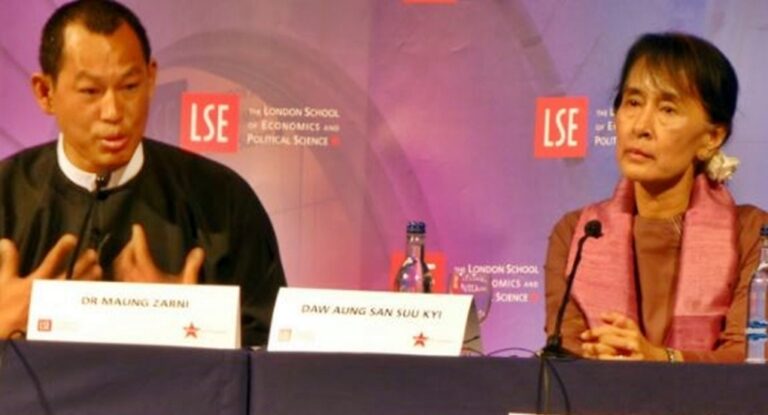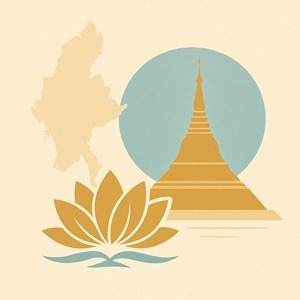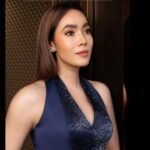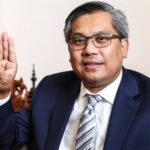
Aung Kyaw Moe vs Dr. Maung Zarni on the Rohingya Crisis in Myanmar
1. Backgrounds
Aung Kyaw Moe
Ethnicity: Rohingya
Current Role: Deputy Minister for the Ministry of Human Rights in the National Unity Government (NUG)
Past Work: Founder of the Center for Social Integrity (CSI), focused on peacebuilding and minority rights in Myanmar.
Aung Kyaw Moe is one of the very few Rohingya figures officially included in a Myanmar government structure. His appointment to the NUG was widely viewed as a symbolic step toward inclusion and an attempt to right historical wrongs.
Dr. Maung Zarni
Ethnicity: Buddhist Burman (ethnic majority)
Profession: Academic, researcher, human rights activist
Known For: Early whistleblower on the genocide of Rohingya; co-founder of the Free Burma Coalition and Forces of Renewal Southeast Asia (FORSEA)
Dr. Zarni has been one of the most outspoken Burmese voices condemning the treatment of the Rohingya, even before the 2017 genocide. Unlike many Burmese intellectuals, he openly uses the term “genocide” and has pushed the international community to act.
2. Positions on the Rohingya Crisis
Aung Kyaw Moe
Aims to work within the political system of the NUG to push for legal, institutional, and policy change regarding Rohingya rights.
Advocates for:
Full citizenship for Rohingya under revised laws
Acknowledgment of past atrocities by the state
Inclusion of Rohingya in future federal democratic Myanmar
Has been part of formal NUG policy statements including:
Recognition of the term “Rohingya”
Pledge to repeal or amend the 1982 Citizenship Law
Commitment to cooperate with international justice mechanisms
He emphasizes collaborative nation-building and constructive diplomacy rather than confrontation.
Dr. Maung Zarni
Takes a radical, justice-centered approach and often criticizes not only the military, but also civilian elites, ethnic groups, and international NGOs for ignoring or denying the genocide.
Believes the Rohingya genocide is not an isolated event but “the logical result of decades of Islamophobia and military-nationalist ideology.”
Strongly criticizes:
The NLD government (especially Aung San Suu Kyi) for denying the genocide
The NUG, including at times its Rohingya policies, for not being bold or inclusive enough
Myanmar’s Buddhist society for failing to confront its role in the persecution
Zarni’s position is rooted in academic research, international law, and a moral argument for reparations and accountability.
3. Key Differences
3. Key Differences
| Aspect | Aung Kyaw Moe | Dr. Maung Zarni |
|---|---|---|
| Position | Deputy Minister in NUG | Independent academic and activist |
| Ethnic Identity | Rohingya | Burman |
| Approach | Reformist, system-based | Revolutionary, critical of the entire state structure |
| Tone | Diplomatic, constructive | Bold, confrontational, uncompromising |
| View of NUG | Supporter and insider pushing for reform | Supportive in principle, but highly critical |
| View of NLD | Critical, but focuses more on military’s role | Deeply critical, blames NLD for enabling genocide |
| Vision | Federal, inclusive democracy | Decolonized, justice-based Myanmar beyond old systems |
| Public Advocacy | Engages with international donors and governments | Appeals to moral conscience and international courts |
4. Areas of Agreement
Despite differences in strategy and tone, both Aung Kyaw Moe and Dr. Zarni share key beliefs:
The Rohingya deserve full citizenship and rights.
The 2017 military campaign constituted genocide or ethnic cleansing.
Justice and accountability must be part of any future reconciliation.
Burmese society must confront its deep-rooted racism and Islamophobia.
The international community must not allow military impunity to continue.
5. Challenges They Face
Aung Kyaw Moe
Faces internal resistance within the NUG and among anti-military groups, where some still hold prejudice against Rohingya.
Must work within a political structure that is fragile, under-resourced, and not recognized by all international bodies.
Cautioned by critics for being too cautious or symbolic, rather than transformative.
Dr. Maung Zarni
Viewed as too radical by some moderate Burmese and international actors.
Often excluded from formal policymaking spaces due to his outspoken criticism of elites across the political spectrum.
Faces backlash for publicly challenging Aung San Suu Kyi and revered political figures.
Both Aung Kyaw Moe and Dr. Maung Zarni have played vital roles in raising awareness and advocating for Rohingya rights, but they operate from very different spaces and philosophies.
Aung Kyaw Moe is working from within Myanmar’s pro-democracy movement, trying to institutionalize change and push for long-term inclusion of Rohingya through legal reforms.
Dr. Zarni remains an external conscience, unafraid to name complicity, demand reparations, and insist that Myanmar must undergo not just reform, but transformation.
Together, they represent complementary forces: one reforming the system from within, the other holding it accountable from the outside.



